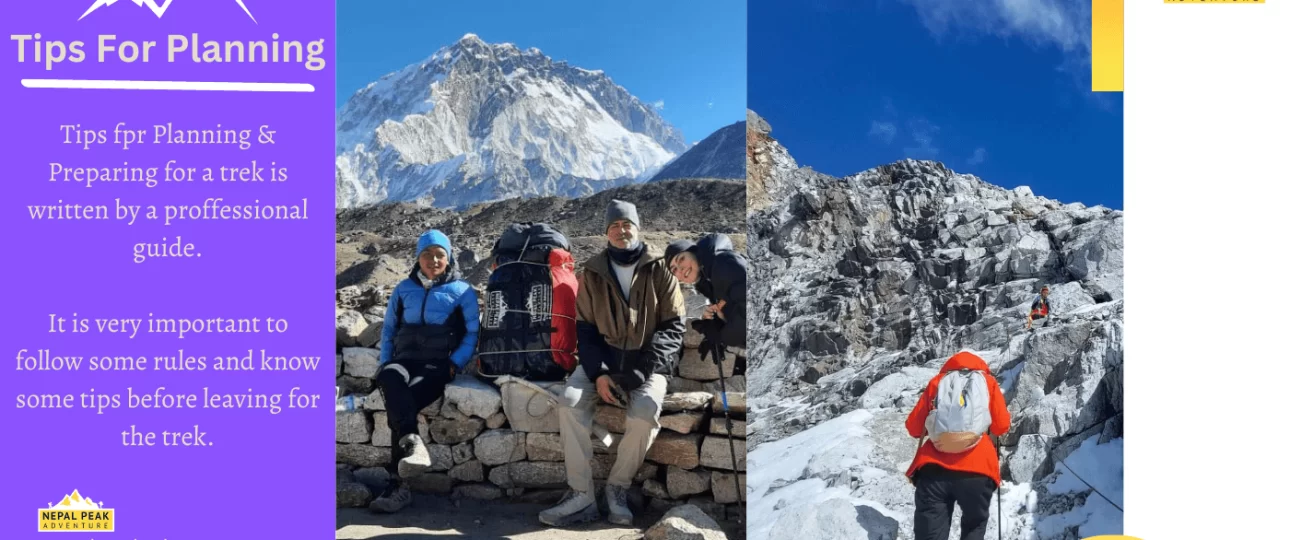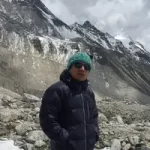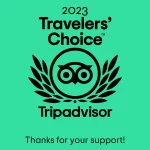Tips for Planning and Preparing for a Trek
Trekking is a challenging activity but a rewarding experience that can heal your mind and spirit. Before taking a step on a challenging trek, there are also certain things you need to know. One of the most important things to consider while planning and preparing for a trek is to consider your physical fitness and pre-trek training. You need to prepare well so that you can handle the demands of your trekking trail.
Similarly to that, there are several important factors you need to consider which I will cover in this blog. Make sure to keep in mind that these points are here to help you with your trek with a 90% success rate. So, the tips for planning and preparing for a trek is:
Table of Contents
Check the Trekking Checklists:
Before planning your trek or doing any pre-trek training, you need to be familiar with the gear or so-called trekking checklists. Sometimes, the checklists vary depending on the specific locations, duration, and weather. However, I have listed the important gear and clothing that you need to include on a trekking checklist:
Clothing and Footwear:
- Hiking boots & shoes
- Hiking socks, woolen socks
- Waterproof Jacket & Pants
- Insulated Layer (Fleece or Down Jacket)
- Base layer (lightweight wicking t-shirts – synthetic fabrics)
- Buff & neck gaiters, Beanie
- leggings
- Sunglass & Sun Hat
- Gloves
- Hiking Pant
Trekking Gear & Equipments:
- Backpack
- Sleeping Bag (-40C cold resistance) *Can be rented
- Flashlight/Headlamp
- Trekking Poles
- Personal Hygiene and Toiletries
- First Aid Kit
- Water Bottle & Hydration Tablets
Navigation & Communication:
- Maps & Compass
- Emergency Whistle
- GPS Device
- Satellite Phone (Provided in large groups)
Documentation:
- Passport
- Travel Insurance
- Visa
- Cash & Credit Cards
- Id or any important documents
It is very important to review your checklist before leaving for the trek. Similarly, after coming in contact with travel agencies like us, we can provide more specific details about what you can bring with you. Having a light backpack during the trek can be very helpful.
Trekking Preparation Tips:
Tips and guides can make a trip more comfortable, safe, & enjoyable. It also helps in minimizing the impact on the environment. Here are some lists of tips to help you prepare for the trek:
- Get in Shape: A physically demanding adventure needs a physically & mentally fit person. It is important to build your fitness level before leaving for the trek. Activities like, hiking, running, swimming, and other cardio exercises can help you to get in shape.
- Plan ahead before booking: Do some research about the trail you will be trekking. Consider the factors such as distance and time to reach one destination to another. Weather and difficulties are also other factors that you need to be aware of.
- Prepare for Emergencies: It is important to be prepared for any emergencies that may arise in the trek. This may include Heli-evacuation which comes with travel insurance, a first-aid kit, or starting a fire.
- Get the Practical Gear, not Expensive Gear: Having essential & practical gear in a backpack is a smart move instead of just buying the expensive gear. You can see the checklists for the practical gear. Also, try to make your backpack light.
- Learn Basic Navigation: Who needs a compass & map when you have a mobile/GPS right? – Wrong! Having a basic knowledge of reading maps & compass is important for trekkers. It can help you a lot.
- Respect local Culture & Leave no Trace: You may find the culture and customs of local people on the trail different than you can imagine. Some people will find it interesting while some trekkers may not like it. However, it is important to respect the culture of others. Also, be careful to minimize the impact on the environment. Follow the “Leave no Trace Behind” method.
Trekking Budgeting and Cost:
Trekking costs vary widely depending on the factors such as itinerary, destination, length of the trip, services, and many more. However, from local trekking agencies like us, a typical trekking package includes:
- Transportation Costs inside Nepal during the trek such as airfare, hotel transportation, & driving from one place to another.
- Permits & Fees required on the trek
- Food and Lodging costs during the trek
- Guides & Porter
So, the cost can increase according to the service you get. To minimize the cost you can,
- Choose a short destination or itinerary
- Renting equipment instead of buying
- Hiring a guide only
- Joining a group which is the best way to minimize costs
Some Basic Trekking Tips to Remember:
Here are some basic tips that you need to remember when trekking:
- Lean on the side of the wall when encountering Yak or Donkey caravan
- Bring a hot water bladder/bag for a better sleep
- Bring books and cards to enjoy your stay in lodges or tea houses
- Carry Nepali currency cash when trekking
- Get yourself a good guide
- Do not drink water from the tap
- Start your trek early
- Walk very slowly & rest from time to time
- Have an extra/spare day as a backup
- Follow the instructions carefully and stay alert



